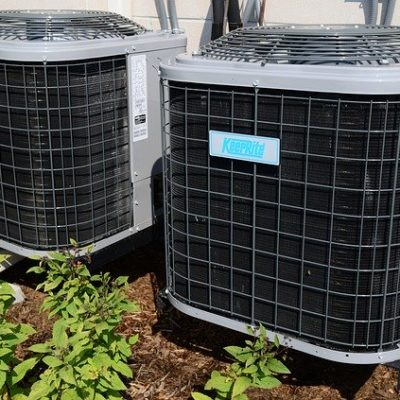AC units manufactured and sold in the United States are often labeled with SEER rating.
An acronym for “Seasonal Energy Efficiency Ratio,” it’s the country’s universal standard for cooling efficiency.
Unless you’re familiar with the SEER rating, though, you might be wondering what it means.
Overview of SEER Rating
The SEER rating is a measurement of an AC unit’s – or furnace’s – level of efficiency.
To cool the interior of your home, your AC unit must consume power. The efficiency at which it can cool your home’s interior is reflected upon its SEER rating.
More specifically, an AC unit’s SEER rating is calculated by taking the cooling output and dividing that number by energy consumption.
The cooling output is the British Thermal Units (BTUs) of cooling power produced by your AC unit during the seasons in which you used it, whereas energy consumption is the average number of hours per day that you used your AC unit multiplied by the number of days that you actually used your AC unit.
Technical jargon aside, SEER ratings reveal how efficient your AC unit is. The higher the SEER rating, the less energy it will consume when cooling your home’s interior.
What’s a Good SEER Rating?
In the United States, residential AC units manufactured after 2005 must have a SEER rating of 13 or higher.
For ENERGY STAR AC units, the SEER rating must be 14.5 or higher. With that said, some states have laws mandating AC units to have an even higher SEER rating, such as 21.
So, what’s a good SEER rating for an AC unit?
Modern SEER Ratings can range from about 13 to 25. Up until the turn of the 21st century, though, residential AC units were less efficient, so they often had lower SEER Ratings.
If your home’s AC unit is at least 20 years, there’s a good chance it has a low SEER rating.
By purchasing a new AC unit, you’ll create a more energy-efficient home that saves you money on cooling costs.
As of 2005, all residential AC units sold in the United States must have a minimum SEER rating of 13, so they require less power – and therefore money – to operate than older AC units.
The bottom line is that you really don’t need to worry about SEER rating if you purchase a new AC unit.
As long as it was manufactured after 2005, it will have a relatively high SEER rating that promotes energy-efficient cooling.
If you are experiencing a problem with your air conditioning or heating call us at 512-336-1431 to schedule an appointment. We’ll be glad to come out and take a look at the issue.
1431-183 A/C & Heating proudly serves Round Rock, Georgetown, Cedar Park, Pflugerville, Leander, Liberty Hill, and North Austin.

